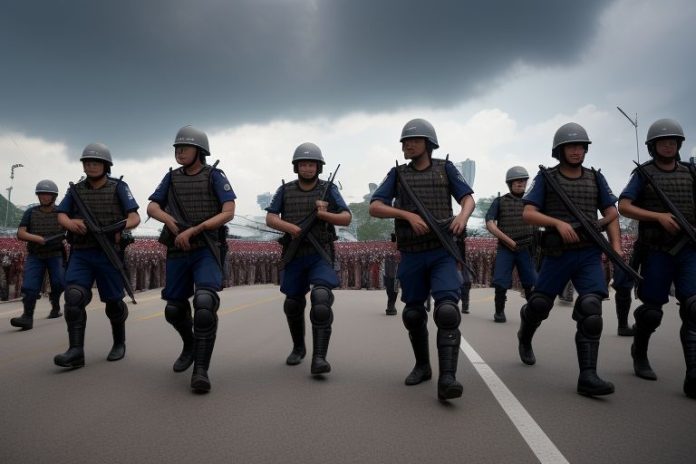Authorities in Malaysia have begun a massive operation against an alleged deviant religious group, arresting its several leaders and searching houses in different parts of the country. The group being targeted is called Global Ikhwan Sdn Bhd (GISB) and allegedly has taken up and proselyted doctrines traced to the Al-Arqam order.
Operations have been carried out in at least five districts of Johor state with reports of other raids in the rest of the country. Three other people linked to GISB have been arrested, including three sons of the founder of Al-Arqam Ashaari Muhammad. The head and principal of a religious school in one of Malaysia’s state, Negeri Sembilan were also detained for being accused of propagating deviant teachings.
The crackdown arose as the public and others raised concerns about activities and teachings of GISB. The Malaysian Islamic authorities said the group teaches erroneous beliefs that are uncharacteristic of Islamic practice and may cause disturbance of public order. The movement from which GISB allegedly has derived its inspiration was founded in Malaysia and was outlawed there in 1994 due to its teaching of what was claimed to be heresies.
The Malaysian Inspector-General of Police Razarudin Husain also dismissed reports sounding a possible link of top police officials with the gang. He said that the police are compiling a dossier to find out whether GISB’s beliefs can fall under the category of deviant in Malaysia. The group teachings are also assessed by the Department of Islamic Development Malaysia better known as Jakim.
The case has attracted lots of public interest and the Sultan of Selangor has condemned what he considers slow action against GISB. Nonetheless, state religious authorities have remained keen in *showing* that they continue to intelligence share and investigate the group.
Many human rights activists have also expressed an concern that detention without trial under Section 23 of SOSMA in this case is acceptable. They have stated that so called religious deviancy ought to have been dealt with accordance to due legal process not through preventive detention laws.
The crackdown has once again brought questions of religious freedom and the state’s ability to police Islamic thought in Malaysia. Though the constitution of the country provides protection to religion and worship, the state religion is Islamic religion and there is unrestricted powers of the authorities to act against the errant teachings.
The matter was recently responded by the Prime Minister Anwar Ibrahim who urged everyone to act in unison in fighting against the emergence of oppressive religious trends. He stressed on how Malaysia, being religious country should respect rights of individuals and the pluralism of the society.
It has also elaborated the political and religious aspect of Malaysia as well as the relationship between the two domains in this country. Others have pointed out that suppression of purported deviant groups tends to occur at a time of political instability or if the government is attempting to posit as ‘Islamic’.
Still, as the investigational processes are still progressing, people remain concerns its expanded geography of operations and their degree of interference. According to the authorities, the group may have extensive business activities and many supporters in every region of the country.
Theories and oppression of GISB occur at a time when Malaysia is facing diverse issues, such as economical strife and political crisis. The manner in which the government address this religious controversy may affect social integration and Malaysia’s reputation as the moderate Islamic nation.
The thing is that at the moment the attention is on the police activities and the trials of those arrested. The case will continue to fuel the public controversy and encourage lawmakers to discuss religious regulation, citizen rights and liberties and the relationship between the government and religious-freedom fighters in multicultural Malaysia.

